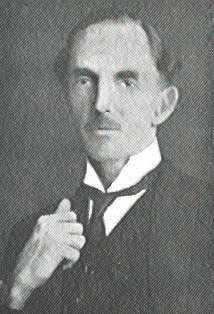In his early years he was a reknowned British cricketeer -- a hero who made his name in sports at Cambridge. Later, however, Jesus Christ became his magnificent obsession. Eventually, Studd left the comforts of home to serve God in China, India and Africa as a missionary. Not only did he serve the Lord on the frontier of nineteenth century missions, but he called many others -- especially students -- into the same service.
Studd was not a man to waste words. He called people to give their all for Christ and His kingdom without hesitation or apology. He had an understandable impatience with those who populated Christian environments but who had never done business with God and tended to flake out or shrink back when challenges appeared.
He referred to them as "chocolate soldiers" who -- though claiming to have a part in God's army -- were prone to melt away in the heat of trial and demand. His comments about these so-called "chocolate soldiers" follows below. As you read them, you may find yourself getting angry and upset about the "chocolate factories" we have built in the life of today's church and Christianity:
Studd wrote --
"To the Chocolate Soldier the very thought of war brings a violent attack of ague, while the call to battle always finds him with the palsy. "I really cannot move," he says. "I only wish I could, but I can sing, and here are some of my favorite lines:
"I must be carried to the skies
On a flowery bed of ease,
Let others fight to win the prize,
Or sail through bloody seas.
Mark time, Christian heroes,
Never go to war;
Stop and mind the babies
Playing on the floor.
Wash and dress and feed them
Forty times a week,
'Til they're roly poly--Puddings so to speak.
Forty times a week,
'Til they're roly poly--Puddings so to speak.
Chorus:
Round and round the nursery
Let us ambulate,
Sugar and spice and all that's nice
Must be on our plate."
Over 100 years have passed since these words were first written. Has the pasage of time only made them more remarkably relevant to our own day?


No comments:
Post a Comment